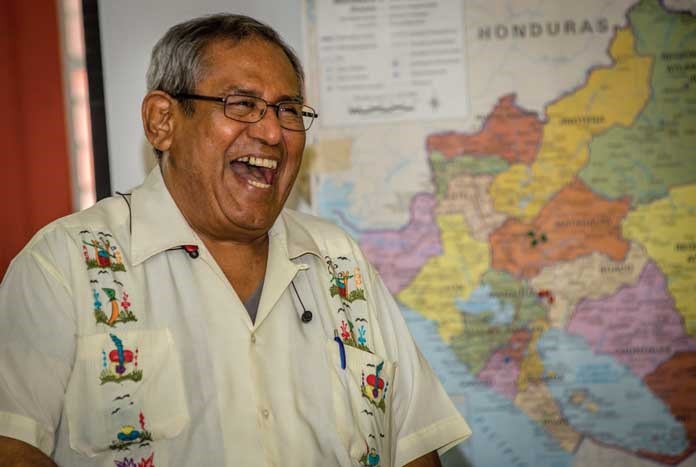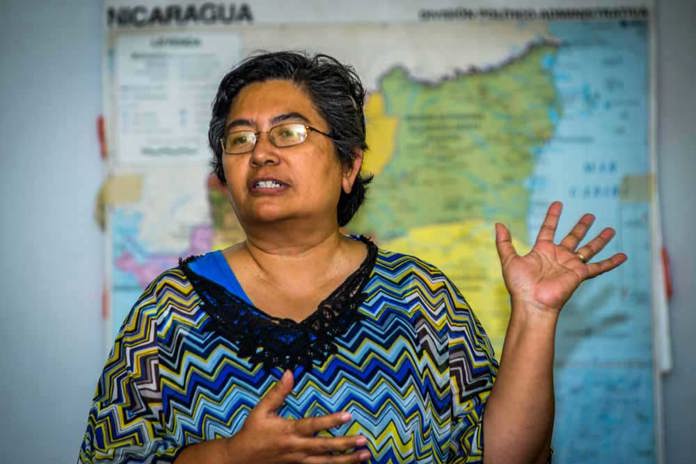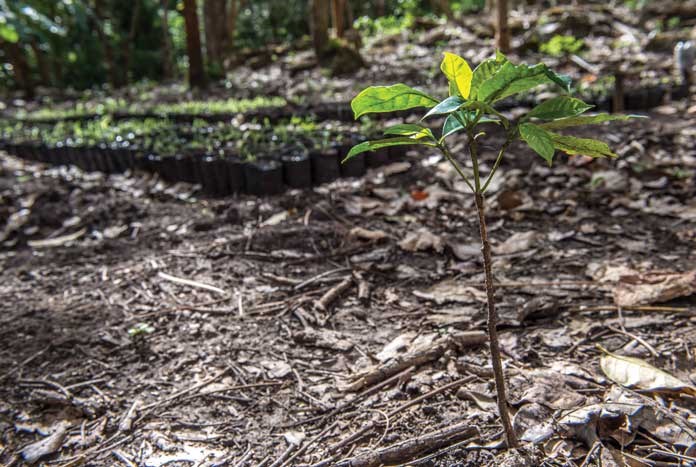How has climate change impacted Nicaragua over recent years?
Nicaragua is mostly an agricultural country, formerly called the “biggest barn of Central America” producing the basic staples of rice, beans and corn for Nicaragua and for export. Farmers used traditional methods and depended mainly on good
climate conditions.
Traditionally, Nicaragua has two seasons: dry — November to May, and rainy — May to November. In the last 10-15 years, the rain patterns have changed, both the timing (now unpredictable) and intensity, causing flooding or droughts. El Niño
causes irregular rain patterns and every year, the farmers have to guess if there will be a good rainy season or not.
Rivers and water sources are drying out, causing illnesses and malnutrition. Deforestation contributes to the lack of rains and insects and other small forms of life are also affected as there is no food available. When families are dependent on agriculture and can no longer fulfil their needs, fathers (and more recently mothers) have to leave their villages in search of better conditions, causing family disintegration.
In the last 10-15 years, the rain patterns have changed, both the timing (now unpredictable) and intensity, causing flooding or droughts. El Niño causes irregular rain patterns and every year, the farmers have to guess if there will be a good rainy season or not.
Can you give some examples of how CEPAD and the communities you work with are tackling climate change?
We are training people in more sustainable agricultural techniques, building water capture systems for irrigation, promoting short–term and short rotation crops such as vegetables and roots and keeping seeds for next year’s planting to preserve
native seeds and not using genetically modified seeds. We also provide seeds that are resistant to dry conditions.
Why do women need to be at the centre of responses to the impact of climate change on communities?
Women and children are the most vulnerable in Nicaragua, especially in rural areas. Women have always been responsible for feeding their families, but with men migrating to the cities and abroad for work, women are now the heads of the family and responsible for putting food on the tables as well.

Gilberto Aguirre: “Rivers and water sources are drying out, causing illnesses and malnutrition. Deforestation contributes to the lack of rains and insects and other small forms of life are also affected as there is no food available.”
CEPAD’s Family Gardens’ project teaches women farming techniques for use on small plots of land near their house so they can produce vegetables, roots and fruits to feed their families and sell any surplus. CEPAD also teaches women how to make crafts to sell or how to run a small businesses.
What does the phrase Climate Justice mean to you?
Every person living on this planet has the same rights to have access to food, clean water and clean air. Climate Justice means those with more resources and responsibility for polluting the air and contributing to climate warming, have to share with the countries on the other end of the scale.
We see that the countries most responsible for pollution are causing the countries least responsible to suffer the consequences and are not held accountable. These countries must stop and provide a fund for countries with less resources, so they can take measures to counter the effects.
What can we in the Global North learn from the Global South?
Have a healthier human relationship with the environment. Think more about your use of natural resources with natural reproduction capacities, and use organic inputs to reduce the dependence on chemicals.
CEPAD’s Family Gardens’ project teaches women farming techniques for use on small plots of land near their house so they can produce vegetables, roots and fruits to feed their families and sell any surplus.
Do you have any theological insights on Climate Justice?
We do not own anything because everything belongs to God, who has given us the responsibility of managing the resources. We need to recognise that all creatures, human beings and animals, are given a divine blessing.
We are stewards of time. Time is the opportunity we all have to be used to do good things. Lost time will be lost. We need to be making good use of time
because the ‘days are bad.’
What does it mean to CEPAD and the communities you work with when people come to visit you?
We’re all God’s children and parts of the body of Christ, regardless of location, race, gender, political or religious beliefs. Everyone has something to share and something to learn from each other. When we receive visitors, it’s receiving part of the family who live abroad in different contexts, with their own particular difficulties, but also with hope like us.

Dámaris E. Albuquerque: “Women and children are the most vulnerable in Nicaragua, especially in rural areas. Women have always been responsible for feeding their families, but with men migrating to the cities and abroad for work, women are now the heads of the family and responsible for putting food on the tables as well.”
We receive you with joy, wanting to show you what we are doing, what we believe in, what our struggles are and what we have achieved and our hope. We want to learn from you and your struggles and dreams. It’s a time of celebration and sharing.
How is the political situation unfolding in Nicaragua after a very difficult 2018? How does this continue to affect you?
Nicaragua has been severely affected. More than 250 people dead, many have moved abroad, over 170,000 jobs have been lost affecting the economy of many families. It is now a much more polarised country, impacting communities, families, even churches. The politicians are fighting for their own interests, but it’s the people who have suffered and are still suffering; separated from their loved ones and struggling to find work and bring home enough food.
Everyone has something to share and something to learn from each other. When we receive visitors, it’s receiving part of the family who live abroad in different contexts, with their own particular difficulties, but also with hope like us.
The villages we work with have not been as directly affected as the cities. However, the economic situation has affected everyone and some people we work with have migrated to Costa Rica, Panama and Spain.
CEPAD has been affected economically as well, the (in)security level has been raised to 3 by the USA, so many groups from churches and universities stopped visiting. We used to receive 25-30 groups a year. In 2018, we received 10. Moral support from churches has been great, sending prayers, messages and money, but we miss the visits.
In August 2018 we started a project to aid the victims of the crisis. We provided training to 186 leaders from across 6 regions, on tools for crisis management. They have provided emotional care to 640 individuals directly affected the crisis.
And finally, what are you most looking forward to about coming to the UK in September?
We’re looking forward to reconnecting with our friends, brothers and sisters from Amos Trust and making new ones, sharing what God is doing in Nicaragua through the churches and communities that work with CEPAD and learning what God is doing in the UK.
Find out more about the work of CEPAD
— — — — — — —
Please sign up to receive Amos Trust’s E-news which will keep you updated about our work in Palestine, our On Her Terms campaign for girls and young women on the streets and our Climate Justice work in Nicaragua.


















